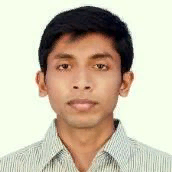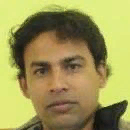International Journal of Image, Graphics and Signal Processing (IJIGSP)
IJIGSP Vol. 9, No. 6, 8 Jun. 2017
Cover page and Table of Contents: PDF (size: 840KB)
Simultaneous Image Fusion and Denoising based on Multi-Scale Transform and Sparse Representation
Full Text (PDF, 840KB), PP.37-44
Views: 0 Downloads: 0
Author(s)
Index Terms
Image fusion, MST, SR, image de-noising, Shearlet
Abstract
Multi-scale transform (MST) and sparse representation (SR) techniques are used in an image representation model. Image fusion is used especially in medical, military and remote sensing areas for high resolution vision. In this paper an image fusion technique based on shearlet transformation and sparse representation is proposed to overcome the natural defects of both MST and SR based methods. The proposed method is also used in different transformations and SR for comparison purposes. This research also investigate denoising techniques with additive white Gaussian noise into source images and perform threshold for de-noised into the proposed method. The image quality assessments for the fused image are used for the performance of proposed method and compared with others.
Cite This Paper
Tahiatul Islam, Sheikh Md. Rabiul Islam, Xu Huang, Keng Liang Ou,"Simultaneous Image Fusion and Denoising based on Multi-Scale Transform and Sparse Representation", International Journal of Image, Graphics and Signal Processing(IJIGSP), Vol.9, No.6, pp.37-44, 2017. DOI: 10.5815/ijigsp.2017.06.05
Reference
[1]Z. Zhang and R. S. Blum, "A categorization of multiscale-decomposition-based image fusion schemes with a performance study for a digital camera application," in Proceedings of the IEEE, vol. 87, no. 8, pp. 1315-1326, Aug 1999.
[2]H. Li, B. S. Manjunath, S. K. Mitra, “Multisensor Image Fusion Using the Wavelet Transform,” Graphical Models and Image Processing, Volume 57, Issue 3, pp. 235-245, 1995.
[3]V. S. Petrovic and C. S. Xydeas, “Gradient-based multiresolution image fusion,” IEEE Transaction Image Processing., Volume. 13, No. 2, pp. 228–237, Feb. 2004.
[4]J. J. Lewis, J. Robert, O’Callaghan, S. G. Nikolov, D. R. Bull, Nishan Canagarajah, “Pixel- and region-based image fusion with complex wavelets,”Information Fusion, Volume 8, Issue 2, , pp. 119-130, April 2007
[5]F. Nencini, A. Garzelli, S. Baronti, L. Alparone, “Remote sensing image fusion using the curvelet transform,”Information Fusion, Volume 8, Issue 2, pp. 143-156, April 2007.
[6]Villegas, O.O.V., De Jesus Ochoa Dominguez, H., Sanche, V.G.C., “A Comparison of the Bandelet, Wavelet and Contourlet Transforms for Image Denoising,” Seventh Mexican International Conference on Artificial Intelligence, MICAI 2008, pp. 207–212, 2008.
[7]M. N. Do and M. Vetterli, "The contourlet transform: an efficient directional multiresolution image representation," in IEEE Transactions on Image Processing, vol. 14, no. 12, pp. 2091-2106, Dec. 2005.
[8]W. Q. Lim, "The Discrete Shearlet Transform: A New Directional Transform and Compactly Supported Shearlet Frames," IEEETransactions on Image Processing, Volume. 19, No. 5, pp. 1166-1180, 2010.
[9]Yu Liu, Shuping Liu, Zengfu Wang, “A general framework for image fusion based on multi-scale transform and sparse representation,”Information Fusion, Volume 24, July 2015, pp. 147-164,
[10]A. Agarwal, A. Anandkumar, P. Jain, P. Netrapalli, R. Tandon “Learning Sparsely Used Overcomplete Dictionaries.” JMLR: Workshop and Conference Proceedings, vol 35, pp. 1–15, 2014
[11]Christopher J Hillar and Friedrich T Sommer. Ramsey theory reveals the conditions when sparsecoding on subsampled data is unique. arXiv preprint arXiv:1106.3616, 2011
[12]D. A Spielman, H.Wang, and J. Wright, “Exact recovery of sparsely-used dictionaries,” Journal of Machine Learning Research pp.1–35, 2012.
[13]M. Yaghoobi, T. Blumensath and M. E. Davies, "Dictionary Learning for Sparse Approximations With the Majorization Method," IEEE Transactions on Signal Processing, Volume. 57, No. 6, pp. 2178-2191, 2009.
[14]B. Yang and S. Li, "Multifocus Image Fusion and Restoration with Sparse Representation," in IEEE Transactions on Instrumentation and Measurement, Volume 59, No. 4, pp. 884-892, 2010
[15]M. Yaghoobi, T. Blumensath and M. E. Davies, "Dictionary Learning for Sparse Approximations With the Majorization Method," IEEE Transactions on Signal Processing, Volume. 57, No. 6, pp. 2178-2191, 2009.
[16]B. Yang and S. Li, "Multifocus Image Fusion and Restoration with Sparse Representation," in IEEE Transactions on Instrumentation and Measurement, Volume 59, No. 4, pp. 884-892, 2010.
[17]M. Aharon, M. Elad, and A. Bruckstein, “K-SVD: an algorithm for designing overcomplete dictionaries for sparse representation," IEEE Transaction Signal Processing, Volume 54, No. 11, pp. 4311-4322, 2006.
[18]J. Tropp and A. Gilbert, “Signal recovery from random measurements via orthogonal matching pursuit,” IEEE Transactions on Information Theory, Volume 53, No. 12, pp. 4655 – 4666, 2007.
[19]D. L. Donoho, “De-noising by soft thresholding,” IEEE Transaction Information Theory, vol. 41, no. 3 pp. 613-627, May 1995.
[20]Image fusion. Some source images (multi-focus, multi-modal) for image fusion: http://home.ustc.edu.cn/~liuyu1/
[21]P. Jagalingam, Arkal Vittal Hegde, “A Review of Quality Metrics for Fused Image,”Aquatic Procedia, Volume 4, 2015, pp. 133-142.



